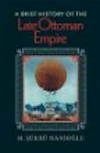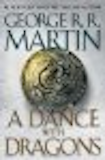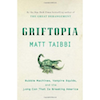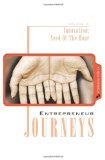books
December 10, 2010 15:51:26.000
The book covers the long period of decline, and - more importantly - how the Ottomans tried to deal with that decline. It's a sympathetic read - if you're looking for information on the Armenian Genocide, for instance, this isn't the place to look. If, on the other hand, you're interested in how they adapted to the steady rise of Europe and the industrial age, this is exactly what you want. I learned a lot about the "Young Turks", and how they were much more continuous with previous Ottoman politics than I had thought.
Why does any of that matter? Well, pull out a map of the near east, and look at all of the troubles the world has there. Never mind current politics - just realize that the map of that region was drawn by the victors of WWI, and then modified by the various successor regimes across the region as they consolidated their rule. Some of that consolidation is incomplete to this day (at least in the minds of the regimes dwelling there).
That's why the end of the Ottomans interests me so much. The empire spanned the time from the late medieval era into the 20th century, and the fallout from its collapse is still with us - just one more reminder that the past is still with us, whether we understand that or not.
posted by James Robertson
books
November 25, 2010 23:05:27.631
 
|
I guess I have to rethink the idea that most spy stories are yarns too unbelievable to be true. I just finished reading "Operation Mincemeat ", and trust me - this story definitely needs to be filed under "truth is stranger than fiction".
", and trust me - this story definitely needs to be filed under "truth is stranger than fiction".
It's not just that the deception operation - using a dead man with false papers to convince the Nazis that Greece and Sardinia were being invaded rather than Sicily - was fantastic. No, it's the various weird things that happened along the way, and the fact that the entire Nazi hierarchy bought the deception, even given all of the holes in it.
|
The book is a great read - like a spy thriller, but with the added benefit of being real history. While Ian Fleming has a bit part in the tale (in case you ever wondered where his ideas came from), the real stars were Ewen Montagu and Charles Cholmondeley, along with the supporting cast of intelligence operatives around them. I won't spoil the story by telling you much more about it - just go grab the book and read it. You'll be glad you did.
Technorati Tags:
wwii, sicily, mincemeat
posted by James Robertson
books
November 7, 2010 10:39:43.656
Independent book stores have been falling to the big box stores for awhile now, but the recession and the rise of popular e-readers (iPad, Kindle) seems to be putting the final nail in the coffin. Here's a story out of Knoxville:
“When we opened, we knew there was a void—there wasn’t an independent new-books store in Knoxville,” McNabb says. “There were just the chains. And that’s where we came in. So that was early 2005, and at that point our main concerns were the chains and Amazon—but we thought we could live that way. And then late 2007, everything started changing.”
2007 is right about the time that e-readers started to pick up, and it was also the start of the recession - so I think it's been a nasty 1-2 punch to those outfits. The big box stores shouldn't get smug though; I can't recall the last time I visited one, and my wife and I read a lot. The Kindle store on the iPad is now our "go to" place.
My guess is that the big stores will hang on for a bit, but like the big record stores (remember those?), they're doomed. The thing is, a small independent store might be more helpful than one of the big box stores, but neither is as useful as "people who bought X also bought Y" - the Amazon recommendation engine. I've bought a ton of stuff that I never would have seen through that, and many of the books I've bought that way were self published, or from very small publishers. Which means that ultimately, this transition should be good for authors.
Technorati Tags:
gadgets, e-readers
posted by James Robertson
books
October 3, 2010 6:46:59.000
I think Seth Godin is on to something. He's written a dozen books, but he's quoted in an interview saying this:
“I’ve decided not to publish any more books in the traditional way. 12 for 12 and I’m done. I like the people, but I can’t abide the long wait, the filters, the big push at launch, the nudging to get people to go to a store they don’t usually visit to buy something they don’t usually buy, to get them to pay for an idea in a form that’s hard to spread … I really don’t think the process is worth the effort that it now takes to make it work. I can reach 10 or 50 times as many people electronically. No, it’s not ‘better’, but it’s different. So while I’m not sure what format my writing will take, I’m not planning on it being the 1907 version of hardcover publishing any longer.”
That sounds about right to me. iTunes (and the various streaming models like Pandora) have completely disintermediated music. It's possible for an artist to sell music without the huge number of middle men now; I think the same thing is about to happen with books. That's terrifying to the publishers of course, but the RIAA wasn't (and still isn't, for that matter) happy either. Technology is going to drive more people in the direction that Godin is taking.
Technorati Tags:
e-books
posted by James Robertson
books
September 27, 2010 11:55:50.000
Tim Bray makes some excellent points about book sharing and electronic readers:
Those in the business of books are unlikely to be losing sleep because I’m whining about sharing, but they’d better be careful. We saw what happened in the music space, and I think authors are way more vulnerable than musicians. First off, no matter how much piracy is going on, a musician can always fall back on live performance. Second, your average novel, compared to music or video, is remarkably small; trivially easy to share once the digital locks are broken, as broken they will be.
The thing about authors and musicans is key - authors really don't have anything else to fall back on. Too much greed on the part of publishers could create real problems. Right now there's limited sharing; with the Kindle app, you can share across 5 devices - so I can share one account with my wife.
However, I can't feasibly pass a book to my mom or sister (I've done this with physical books). The issues of space (they live in other states) and credit card sharing get in the way. THis is going to end up being a problem, and if the publishers don't create a reasonable response, the response that arises will be one they won't like.
Technorati Tags:
e-books, e-readers
posted by James Robertson
books
August 23, 2010 12:35:02.000
Ever since I started reading on my iPad, I've been tearing through books like a knife through warm butter - and I've fallen way, way behind on the reviews I normally post here. Sometime in the next week or two, I intend to catch up, but here's a list of what I've been reading:
I guess I've been in the mood for "things stink, and they will get worse" lately :)
posted by James Robertson
books
July 31, 2010 10:43:26.361
 
|
I just finished reading John Scalzi's The Android's Dream - after reading some of his other books, I knew he was a funny author, but this book was hilarious. It's semi-serious science fiction, but with tons of laughs tossed in as well. Heck, how many books start out with a diplomatic incident caused by device enhanced farting? - after reading some of his other books, I knew he was a funny author, but this book was hilarious. It's semi-serious science fiction, but with tons of laughs tossed in as well. Heck, how many books start out with a diplomatic incident caused by device enhanced farting?
I can't really go into much detail about the book without giving important stuff away, but suffice to say that Scalzi created a serious world with an absurd set of premises that all work really well together. Between a technology backed religion, genetic engineering, and software hacking, there's a lot going on in this story.
|
I enjoyed it a lot, and if you liked anything else by Scalzi - like Old Man's War - you'll like this. A lot of people compare Scalzi's style to Heinlein, and I think they're right.
- you'll like this. A lot of people compare Scalzi's style to Heinlein, and I think they're right.
Technorati Tags:
scifi
posted by James Robertson
books
July 25, 2010 10:53:58.846
 
|
I finished reading Armenian Golgotha on my iPad about 2 weeks ago; it's taken me some time to fully wrap my head around it. (I have my early review of the book here) The genocide perpetrated against the Armenians of Turkey really looks (in retrospect) like a trial run for what happened in Germany 30 years later. Many of the same tactics were used, just in a less "factory-like" setting. In some ways that made the outcomes more terrible to read about; imagine a group of exiles, marching away from everything they've known - only to be set upon with axes and other tools by the inhabitants of the region they were passing through - who then robbed the bodies after desecrating them. on my iPad about 2 weeks ago; it's taken me some time to fully wrap my head around it. (I have my early review of the book here) The genocide perpetrated against the Armenians of Turkey really looks (in retrospect) like a trial run for what happened in Germany 30 years later. Many of the same tactics were used, just in a less "factory-like" setting. In some ways that made the outcomes more terrible to read about; imagine a group of exiles, marching away from everything they've known - only to be set upon with axes and other tools by the inhabitants of the region they were passing through - who then robbed the bodies after desecrating them. |
The entire period is filled with things that should have created a "never again" movement. First there was the Armenians, and then, after the ill fated Greek invasion of the early 20's, there was the murder of the remaining Armenians (and Greeks) in Smyrna (et. al.). For the latter incident, various European navies sat in the harbor and watched. During the Armenian genocide, the German wartime government knew what was happening, but stayed quiet - in order to get the rail line to Baghdad built. Afterwards, the architects of the horror were granted asylum in Germany; the Entente powers, after a brief show of arresting a number of lower officials who were complicit, let them all go.
There were various points in the book where I really wanted to just put it down, but I ended up feeling like I owed the author - who wrote the book as both a first hand survivor and remembrance for those who wer lost. After reading that, I had to move on to a light science fiction book.
Technorati Tags:
genocide, armenia, history
posted by James Robertson
books
July 11, 2010 10:41:36.846
 
|
I picked up Armenian Golgotha for my iPad (via the Kindle app - as a side note, the way it synchs between my iPad and iPhone is awesome). It's a highly disturbing book, and perhaps the most disturbing part about it is reading it now, after the 20th century and the much more well known Holocaust.
for my iPad (via the Kindle app - as a side note, the way it synchs between my iPad and iPhone is awesome). It's a highly disturbing book, and perhaps the most disturbing part about it is reading it now, after the 20th century and the much more well known Holocaust.
Why do I say that? Well, reading Balakian's first person account is looking at "version 1", if you want to run the risk of trivializing it with a bad analogy. Roving death squads? Check. Using cover of war to hide what you're doing? Check. Run at the highest levels of govenment? Check. The only real difference between what happened in Anatolia and what happened 30 years later in central and eastern europe is how blame was assigned (or not).
|
The Ittihad government was the end of the Ottomans, and a revolution and successor state took over. I'm not going to get into the continuing attempts to deny reality; a few Google searches should tell you everything you need to know about that. No, the thing that realy strikes me while reading this book (I'm only partway through) is how prototypical the Turkish effort was for later genocides, whether you're looking at what the Nazis did in Europe, or at what the Pol Pot regime did in Cambodia. It seems pretty clear to me that an educated elite studied this earlier attempt, and took notes.
posted by James Robertson
books
July 8, 2010 6:28:30.000
Borders has jumped into the e-book store and reader game - with most of the action on the store side, I'm sure:
Since Borders' store has more than one million titles, there's no shortage of content, even for readers with eclectic tastes. The big question, however, is how Borders will distinguish itself in the e-bookstore war. With three fierce competitors--Amazon, Apple, and Barnes & Noble--already open for business, Borders will need to stir up trouble to lure visitors to its site.
I downloaded the app immediately, but then ran into an all too familiar problem - I registered with Borders eons ago, using my personal email address - but I have no clue what username or password I used. At least they have a retrieval option :)
Technorati Tags:
gadgets, borders
posted by James Robertson







